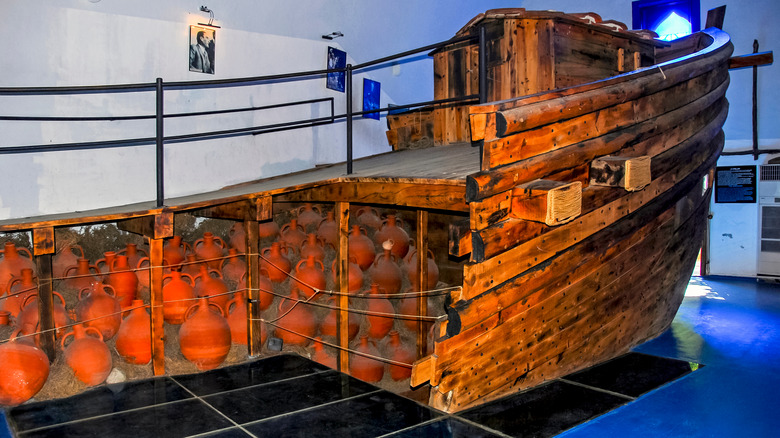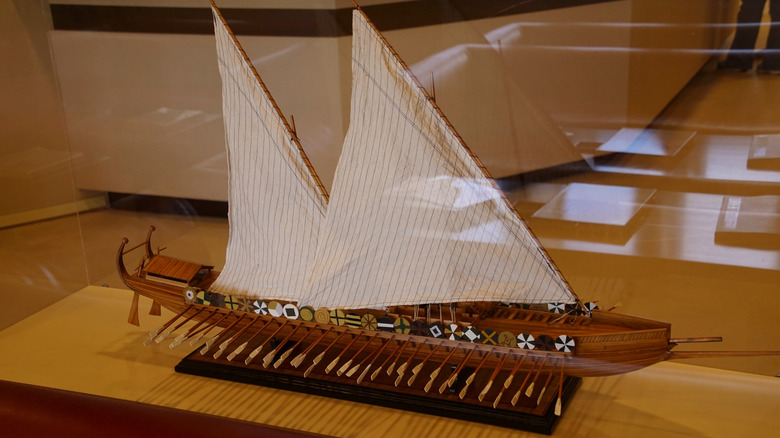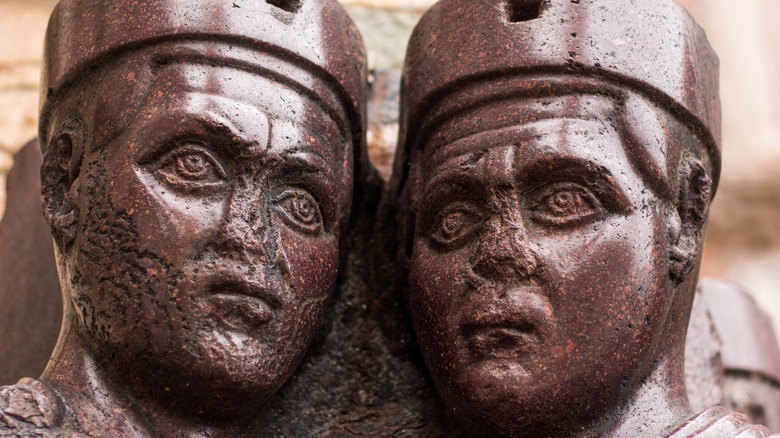A 1,200-Year-Old Shipwreck Found Near Israel Changed The Way We Look At Byzantine History
On September 23, 2022, the Express reported that a ship had been dredged up from the Mediterranean waters off the coast of Israel. It was a big vessel, over 80 feet long, but what was stunning about it was its age. This ship had sunk over 1,200 years ago, in the seventh or eighth century A.D. It was a merchant craft of the Byzantine Empire, the Greek-speaking, Orthodox Christian rump state left by the collapse of the Roman Empire's western half.
When found, the ship was still laden with clay jars, filled with the traditional foodstuffs of the ancient Mediterranean: olives, dates, dried figs, and garum, a sauce of fermented fish that the ancients used like soy sauce (via Smithsonian). It's not clear where the ship was headed or from which port it had departed, but as the cargoes came from all over the Mediterranean, from Cyprus to North Africa, it could have been bound for any major port: Alexandria, Constantinople, Tarsus, or anywhere else.
Challenging history
The Express quotes an archaeologist from the University of Haifa who said that it wasn't so much the ship's size, or its age, that was remarkable, but the combination of its size and age. Historians had long assumed that marine traffic in ships this big had ceased before the 600s or 700s. The Byzantines were at war with a new power in the region: Islam.
After the prophet Muhammad had united the tribes of Arabia, his followers swept north into Mesopotamia and the Levant, territories that had long been held by the Romans and were now Byzantine provinces. Slowly, the Arabs began to absorb regions like Syria and modern Israel, converting a large part of the population to Islam and establishing their own governments. These chaotic centuries, the story went, strangled international commerce; only small ships ever sailed to and from familiar harbors. But this shipwreck proves the story wrong, or at least exaggerated.
Wars and wares
In fact, certain discoveries aboard the lost Byzantine merchant ship offer tantalizing clues about life during this period. Divers with specialized underwater vacuums found otherwise unremarkable objects marked with something like a "product of" statement. Some had been marked with Christian symbols, indicating origins in the Byzantine world. Others clearly showed Arabic script — products of the growing Muslim world, perhaps from lands that had only recently learned to write in Arabic.
War and trade clearly don't cancel each other out, even if warriors and traders do. The Byzantine Empire managed to survive the onslaught of the Arabs, although it would lose a number of its greatest cities, like Jerusalem and Damascus. The Empire would even go on to enjoy a second golden age, as Britannica puts it, in the 11th century, trading with their rivals in the west, like the Italian maritime republics. But just as war does not negate trade, trade cannot prevent war. Constantinople, the Byzantine capital (now called Istanbul), would be sacked by Western European armies during the Second Crusade in 1203-1204, in a nightmare of mass murder, rape, and robbery (via World History). The successor to Rome was already doomed, and by 1453 what little of it remained would be history.


